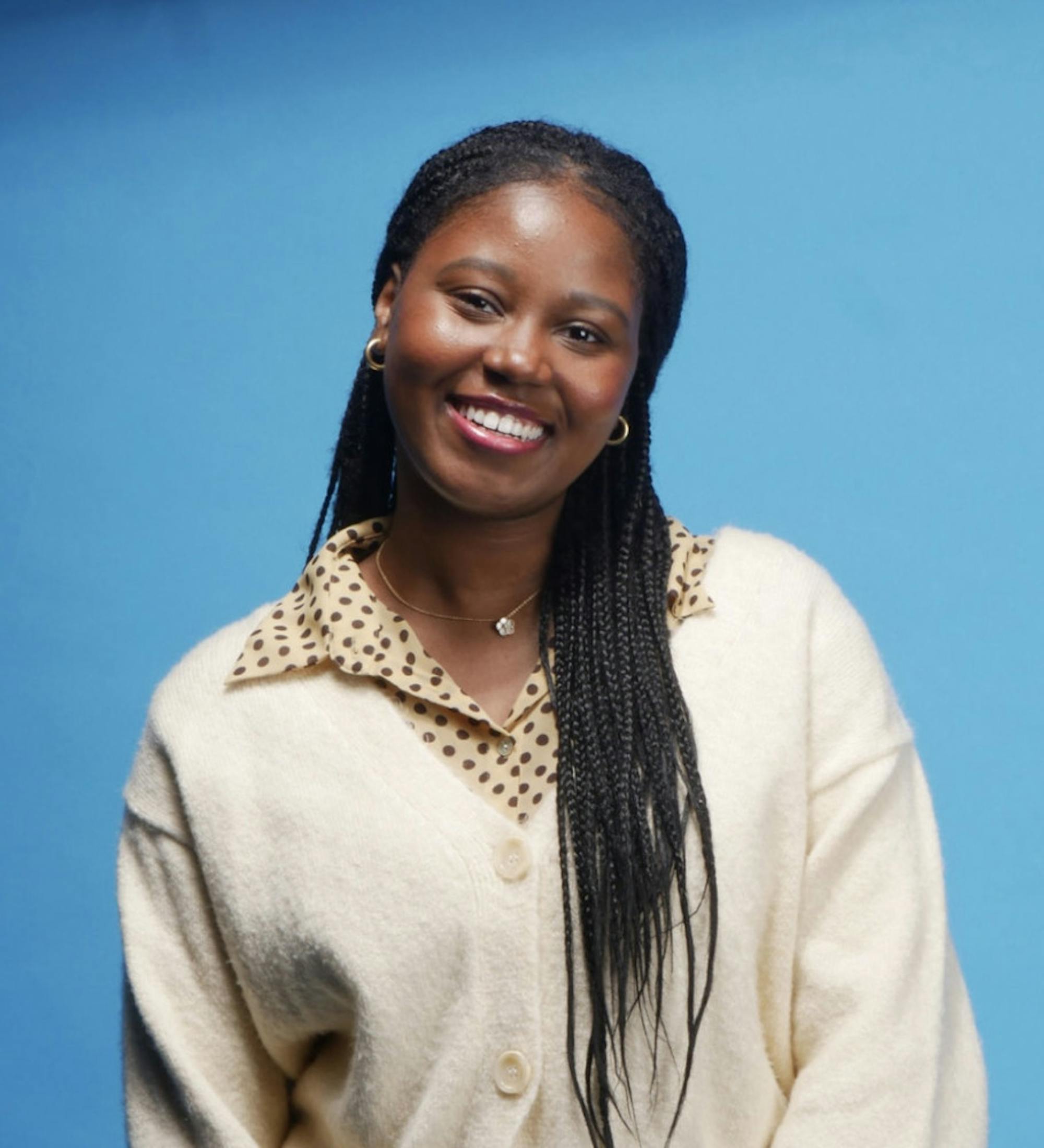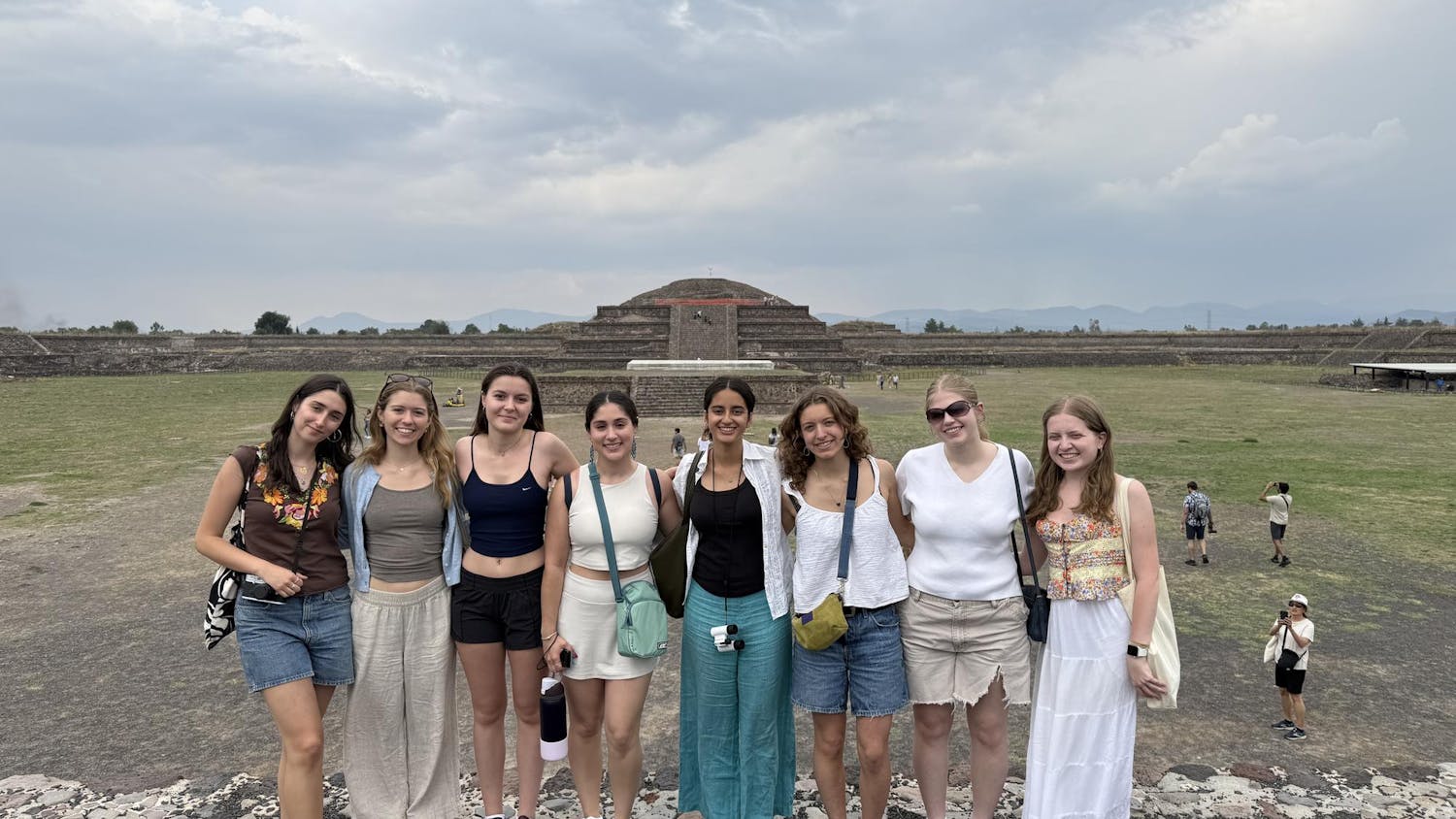Isabelle Charles, a senior majoring in English and Africana studies, is the 2023 recipient of the Wendell Phillips Award. This annual award is given to a senior who is both an exceptional speaker and has a great sense of responsibility toward the community. As the Wendell Phillips Award winner, Charles will give a speech as part of Commencement weekend during the Baccalaureate Ceremony on May 20.
The Wendell Phillips Award was established in 1896, and the winner delivers an inspirational message to the graduating class centered around the ideas and values of civic engagement.
Charles sat down with the Daily and explained how applying for the Wendell Phillips Award was a chance to look back on her time at Tufts.
“I’d been reflecting on my senior year and my Tufts experience for so long,” Charles said. “Being a writer and trying to compartmentalize everything, I was like ‘Wow, how would I describe this whole experience, these four years?’”
During her academic career at Tufts, Charles double majored in English and Africana studies. She switched from sociology to English in her sophomore year when she realized she missed aspects of the English curriculum such as creative writing.
From the start of her college experience, Charles decided to pursue courses in the Department of Studies in Race, Colonialism, and Diaspora, which houses the Africana studies major. She was spurred by a love of history, her own background and her advisor — former Professor H. Adlai Murdoch, who previously taught Intro to Africana Studies.
“[Murdoch] has just been instrumental to my experience,” Charles said. “My mom is Jamaican and Panamanian, my dad is Haitian, and so that’s what struck me to go into Africana studies.”
Charles was also involved in a variety of on- and off-campus extracurricular activities throughout her time at Tufts.
She was a member and eventual co-president of the Ladies of Essence, Tufts’ only all-femme a capella group that specializes in music from the African diaspora and African tradition.
“It was a lot of work, but it was very rewarding in the end, because it’s a very talented group of individuals,” Charles added.
During her sophomore year, when she was at home due to the pandemic, Charles wrote for the Tufts Observer. When Charles returned to campus her junior year, she became the magazine’s poetry and prose editor.
“I joined the Observer as a staff writer, and that was really fun because I had met a lot of new people through the Observer, and I was able to write again in a way in which … was different to class writing or academic writing,” Charles commented.
During the second semester of her junior year, Charles became the president of the Tufts English Society. She organized events including meet and greets, professor panels and creative writing showcases, and her love for the English department left her honored to hold the role.
In the fall of, and the summer after, her junior year, Charles had an internship at “Basic Black,” a show on GBH, Boston’s PBS station.
“It was a very incredible experience being able to see how news is made behind-the-scenes,” Charles said. “I was able to do some research because they do a whole different slew of shows on different topics. … But the focus is definitely on the interests of people of color in the Boston area specifically, but also nationally as well.”
During the summer between her junior and senior year, Charles was also an editorial intern at Transition Magazine, the magazine of Africa and the African diaspora housed at Harvard’s Hutchins Center for African and African American Research.
At the same time, Charles was conducting research funded by the Ted Shapiro Memorial Award under the race, colonialism and diaspora department at Tufts, which became a precursor for her senior thesis.
“That research was a lot more about family history for me. And it also was … kind of a precursor to my now-thesis,” Charles said. “I started from a very personal frame … then I moved on to how diasporas have worked in the Caribbean and how they evolve.”
Charles’ passion for literature and research is reflected in her application process for the Wendell Phillips Award. During this time, Charles read a collection of works centered around the college experience, simultaneously taking notes that would later inform part of her application.
“I was reading these books … and I was finding an amalgamation of all the things that I was experiencing, seeing, feeling, all the emotions,” Charles said.
The application for the Wendell Phillips Award included a letter of intent, a resume and a recorded speech. After submitting her application, it was reviewed by the Committee on Student Life. At the start of spring break, Charles was notified that she was one of the four finalists selected for the award. Coincidentally, Charles knew of, or knew personally, the other three finalists.
“That was Fatima Lawan, who is one of my really good friends and we also have the same birthday; … Jaden Pena, our student body president; and Mark Lannnigan, who I actually lived right across the hall from in Miller Hall,” Charles said.
Two days after the four finalists presented their 10-minute speeches at an open forum in Goddard Chapel, Charles received a call notifying her that she had been selected as the Wendell Phillips Award 2023 recipient.
“Immediately, I called my parents, I called my brother and then my grandma as well, my aunts, uncles,” Charles said. “I have a very big family and we’re very close, so it was super super exciting, and I just remember that being such a very joyful moment.”
While writing her speech, Charles was inspired by Wendell Phillips, the 19th century abolitionist and advocate for Native Americans, to write about the importance of community.
“I emphasize in my speech … the importance of community, and the importance of that to my Tufts experience and also to the experience of other people in my communities at Tufts,” Charles said. “We’ve dealt with a lot of heavy-duty things, and I think that the ability to come together as a community to support one another has been … so instrumental to our own sense of grounding.”
Charles also explained that in her speech, she reflects upon the importance of civic engagement and of helping others.
“I really wanted to articulate … the importance, also, of our civic engagement … and how Tufts students have been helping other people throughout our Tufts experience,” Charles said. “We need to continue to do that as we go out into the world.”
Charles said that she sees every day how passionate and excited people are to be able to make some kind of change in the world. The message of Charles’ speech is that in order to create change, we have to come together as a community and understand others’ stories.
“Everyone has a different story. … We must also have the ability to listen and to advocate for other people and to also understand other people’s stories alongside our own story,” Charles said. “There is so much more emphasis, so much more depth, so much more strength when we all come together to try to create change.”
From her own personal experience at Tufts, Charles said that one of the things she has learned is that members of communities are built to provide mutual support for each other.
“Whether that is through the groups that I’m a part of, or through my closest friends … something that I’m definitely going to take away is the importance of leaning on your people, leaning on your community when you need to, and also being there for them as they need to lean on you,” Charles said.
Charles added that her family has been very supportive during her college experience.
“I would not have been able to go through the four years without the support of my family,” Charles said. “I’ve been so incredibly blessed to be a part of such an incredible group of people. … They’ve been such great role models.”
Through writing the Wendell Phillips Award speech, Charles has been able to reflect on how she, as an individual who is a part of a community, can contribute to some type of change in the world.
“It’s just such an honor,” Charles said. “I’m so incredibly grateful and blessed to be able to give this speech and to be able to reflect on what I’ve seen and what I’ve experienced and also the ways in which the students all around … have done all the good work that they have.”






